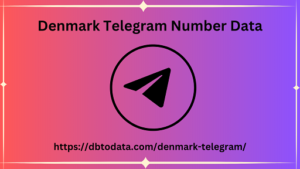Post by amirmukaddas on Mar 12, 2024 23:13:26 GMT -6
I have been working on the web for about 15 years, albeit with different tasks. What I define as "my healthy restlessness" requires me to understand the logic that governs the contexts in which I move, so it seemed natural to ask myself what the differences were between a quality web project and one, however, that could not no way to define oneself as such. I was looking for standards that could objectively measure my work, so I started to give weight to factors such as code validation, accessibility, formatting of textual content or symmetries and proportions in the design. Visibility in search engines was just one of the indicators chosen to measure my work, but even there it was necessary to understand the reasons for some results rather than others. A loop emerged: you understand aspects which in turn trigger new doubts to resolve. However, I can tell you with absolute certainty that I have no intention of stopping. I really like what I do and I find this continuous search for answers and solutions extremely stimulating. 2) How did you learn to do SEO? I have a deep respect for SEO and for those who dedicate all their time and professionalism exclusively to this work, which is why, being more oriented towards web development, I have always been careful not to define myself as an "SEO".
Having said this, for the reasons described previously, I began to research and read (in what I would define as almost obsessive-compulsive) everything I could find online that could, in various ways, concern the quality of the sites, understood as User Experience or the ability of search engines (predominantly Google to be honest) to crawl, index and rank content. Over time, checking my work procedures, in light of what is described in Google's guidelines, has become the norm. When reading alone was no longer sufficient to clarify some points, I considered it essential to discuss Denmark Telegram Number Data with others who I knew were working on the same topics, or better yet with whoever had written those guides. This is how I came across the Google Webmaster Forum, certainly the place that helped me more than others to understand how SEO works. The requests for assistance from users (sites with always different technical characteristics and with often very distant problems) and the daily discussion with the forum team (Google Guides, Official Collaborators and Astri) are extremely stimulating and frequently offer the opportunity to call into question their "certainties" in light of new elements and knowledge.

Obviously inevitable, as it should be, there is a lot of work, study, curiosity and desire not to be satisfied with partial results, when the bar had been set higher. 3) What would you do to Matt Cutts if you found yourself alone in a dark alley at night with no cameras? I would invite him for a drink in the hope of holding the alcohol better than him, so as to make him unbutton a little about Google's plans, the search engine, for the next 10 years. Jokes aside, I know that it is not the most widespread consideration in our environment but I greatly respect his work and I consider it extremely simplistic to attribute to him all the causes of any malfunctions, without giving him the merits of having contributed to the creation of the most used search engine in the world.
Having said this, for the reasons described previously, I began to research and read (in what I would define as almost obsessive-compulsive) everything I could find online that could, in various ways, concern the quality of the sites, understood as User Experience or the ability of search engines (predominantly Google to be honest) to crawl, index and rank content. Over time, checking my work procedures, in light of what is described in Google's guidelines, has become the norm. When reading alone was no longer sufficient to clarify some points, I considered it essential to discuss Denmark Telegram Number Data with others who I knew were working on the same topics, or better yet with whoever had written those guides. This is how I came across the Google Webmaster Forum, certainly the place that helped me more than others to understand how SEO works. The requests for assistance from users (sites with always different technical characteristics and with often very distant problems) and the daily discussion with the forum team (Google Guides, Official Collaborators and Astri) are extremely stimulating and frequently offer the opportunity to call into question their "certainties" in light of new elements and knowledge.

Obviously inevitable, as it should be, there is a lot of work, study, curiosity and desire not to be satisfied with partial results, when the bar had been set higher. 3) What would you do to Matt Cutts if you found yourself alone in a dark alley at night with no cameras? I would invite him for a drink in the hope of holding the alcohol better than him, so as to make him unbutton a little about Google's plans, the search engine, for the next 10 years. Jokes aside, I know that it is not the most widespread consideration in our environment but I greatly respect his work and I consider it extremely simplistic to attribute to him all the causes of any malfunctions, without giving him the merits of having contributed to the creation of the most used search engine in the world.
